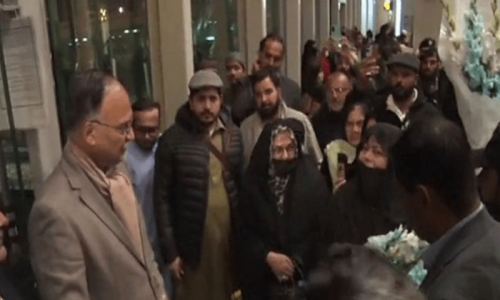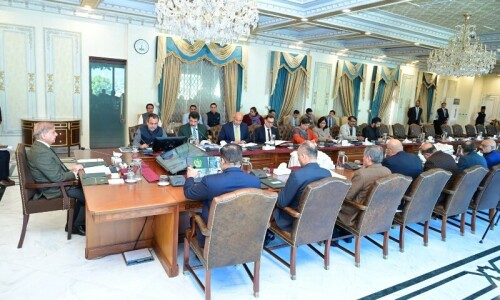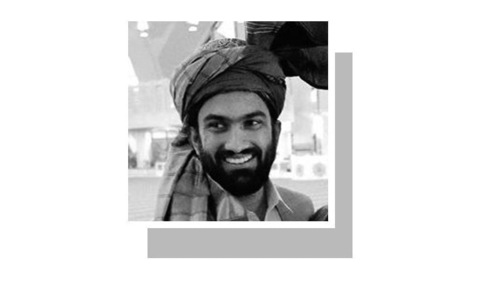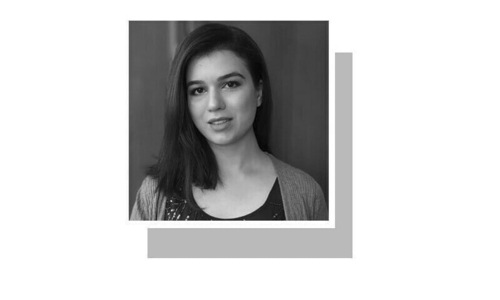KARACHI: The four-day 17th International Urdu Conference having the theme ‘Celebrating Karachi’ hosted by the Arts Council of Pakistan concluded on Sunday evening at the YMCA Ground.
Delivering the keynote address, Prof Dr Jaffer Ahmed said 44 sessions were held in the four allotted days in which topics related to Karachi were discussed.
He said Karachi has other facets as well, such as a distorted facet, a tired facet behind which there are failures of governments, extremists’ heavy-handedness, mafias, the disintegration of governance, citizens’ helplessness; then there is a distance between provinces and lack of basic amenities in all cities.
“The tragedy of today’s Pakistan is that the state appears to be disconnected with society. As a result, there’s a crisis of governance… Citizens find themselves helpless,” he said.
Participants adopt resolution to express solidarity with people of Palestine; ask govt to make IPC ministry effective
Dr Ahmed said in 2022, 1.5 million Pakistanis left the country, and in 2023 the number increased to 1.6m. After painting a bleak picture of society, he commented that to rectify the situation while taking good political decisions is important, culture too plays a significant part. “Culture is the biggest weapon for citizens. We can call it a path-breaking process… Culture shows us the way.”
Writer Noor Ul Huda Shah said Karachi is the heart of Sindh.
Poet Iftikhar Arif lauded the council’s efforts in arranging the conference and recited a few of his couplets on Karachi.
The council’s President Ahmed Shah put forward some resolutions for approval of the large crowd at the YMCA and the guests who were on stage. They were approved enthusiastically.
Some of them were: all writers of the country stand with the oppressed people of Palestine; all writers of the country believe that the people of Kashmir have the right of self-determination; more opportunities for the young generation; after the 18th Amendment culture and education have become provincial subjects due to which there’s lack of coordination between provinces. The inter-provincial coordination (IPC) ministry should be made effective; the price of paper should be brought down.
Then writer Anwar Maqsood came to the podium and first made an important clarification about the rumour that had been circling around since last night about his disappearance because he had recently said something about the navy.
“I have been reading and writing for the last 60 years. I don’t joke about the Shaheeds. I’m alive because of them. The Shaheeds have sacrificed their lives for us. I can’t even think about making fun of them. If any of my words have hurt them, I apologise.” After that, he read out the Quaid-i-Azam’s letter to Karachi.
Sindh Governor Kamran Tessori was the chief guest on the occasion. Stressing importance on the Urdu language, he said until we feel proud of speaking in Urdu, all the problems won’t be resolved and the country won’t progress. Earlier, the day began with an enlightening session on Urdu fiction focusing on Karachi’s writers. It was moderated by Irfan Javed and presided over by writer Asad Muhammad Khan.
Hafeez Khan was the first speaker who read a paper on novelist and short story writer M Khalid Akhtar. He said although Akhtar was born in Lahore and lived in Bahawalpur, the time he spent in Karachi became a major part of his fiction. He was inspired by George Orwell’s 1984 and Akhtar’s novel 2011 is influenced by it. It was called Urdu’s first fantasy novel. It was Chakiwara Mein Visaal and Baqi ki Kahaniyan that depicted Karachi’s life well.
M Hameed Shahid’s paper was on Quratulain Hyder. He said after 1947, Karachi turned into a densely populated city. The pangs of migration was the main subject of the city’s writers. Hyder carved her distinct identity in fiction and her stories underline the partition. She was alleged to have monotony in her stories, but she proved it wrong because no other writer in Urdu fiction created as many characters and situations as Hyder.
Akhlaq Ahmed spoke about Ibn-i-Safi. He said the writer early on his career had found a way to pen effective tales.
Syed Kashif Raza focused on the short stories written in or about Karachi. He mentioned quite a few names such M Khalid Akhtar, Asif Farrukhi and Shaukat Siddiqui. He said Siddiqui is the only writer in fiction who wrote on how a city looks and feels at night. He said Saghir Malal used inventive language in his tales, and also highlighted some writers who aren’t discussed vis-à-vis Karachi, such as Ghazi Salahuddin (with special reference to his story Aik muhabbat ki kahani), Rafaqat Hayat and Amar Mehboob Tipu.
Iqbal Khursheed’s paper was on Shaukat Siddiqui. He said Siddiqui’s Khuda Ki Basti has a central position in the history of Urdu fiction.
Anwer Sen Roy pointed out omissions of certain names during the discussion such as Asad M Khan, Akhlaq Ahmed, S Kashif Raza (who were on stage), Azra Abbas, and Hasan Javed.
A well-attended post-lunch session was a conversation between two popular young poets Fariha Naqvi and Ali Zaryun. Ali Zaryun, praising his colleague read a verse by Naqvi:
Aap ko moonh nahin lagaya to
Aap buhtaan per utar aaey
[I didn’t pay respond to your advances
So, you resorted to allegation]
Naqvi then told the audience that she’s a fan of Zaryun. He was the first one to encourage her to write poetry. She said not many know that apart from Urdu, he also writes poems in Persian and Arabic.
Published in Dawn, December 9th, 2024












































Dear visitor, the comments section is undergoing an overhaul and will return soon.